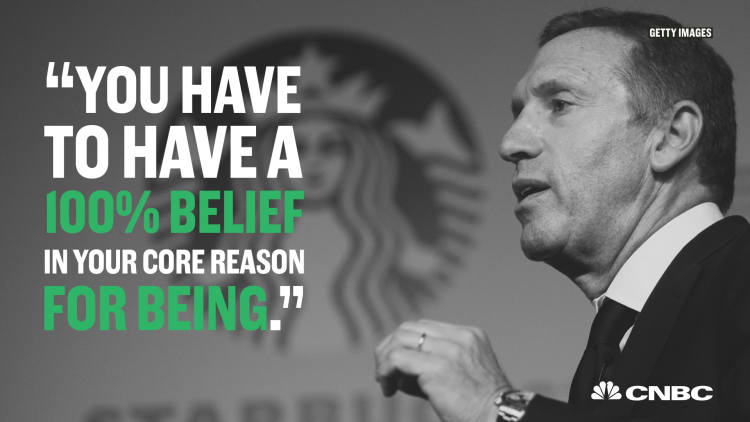Vicky Tsai was officially a Harvard Business School graduate for less than a week when she found herself making coffee, washing dishes and taking out the trash at a Starbucks cafe in China.
"I graduated business school on a Thursday or Friday, then right after went to Shanghai," Tsai tells CNBC Make It. By 4 a.m. Tuesday morning, she was setting up tables and opening shop.
The experience in 2006 was part of her first corporate job out of graduate school, working for Starbucks to expand its China market.
"Corporate people at Starbucks at the time were allowed on the line," Tsai recalls of the role. The company's store immersion program takes place in U.S. and international cafes and is designed to help new corporate hires better understand the in-store Starbucks experience. "It's really, really stressful to make coffee for people when you don't know how — they get angry! So they let you spend some time on the line, but mostly you take out garbage and wash dishes.
"I spent most of my day either disappointing customers or washing dishes," Tsai adds.
Tsai's first-hand customer service experience paid off six months later when she pitched and executed the coffee giant's strategy to launch consumer products in China, which included introducing the bottled Frappuccino in time for the Beijing Olympics in 2008. China now has 4,100 Starbucks locations in 168 cities.
"It all clicked why it was so important," Tsai says, "and I could understand the experience of our baristas in what would excite them, what wouldn't work for them, and just the reality of what we'd be asking them to do —and that was so important."
Tsai drew from the lessons she learned at Starbucks when she founded her own skin care company, Tatcha, in 2009.
The luxury skin care brand with fans in Kim Kardashian and Meghan Markle would go on to make an estimated $70 million in sales in 2018, according to investment bank Bryan, Garnier & Co., and reported by Bloomberg. It was acquired by Unilever during summer of 2019, for a deal approaching $500 million, WWD reported citing industry sources. (The company declined to comment on the terms of the sale or its annual sales figures.)
"To this day, I ask that everybody who works at our company starts in our warehouse," Tsai says. She recently hired a new CEO, chief operating officer and creative director, who spent their first few days with Tatcha's customer service team and at the warehouse where orders are packed and shipped.
"The closer you are to the client, the more you understand what's working and not working," Tsai says of the method. "The second you get too far away from the client, you start making weird mistakes."
Tsai's laser focus on the customer experience extends to her digital tasks, too.
"I largely don't use email anymore, but I get all the ones that go to info@tatcha.com filtered into a folder that I will read —every single question, complaint suggestion, compliment," she says. "I read it 24/7."
Tsai isn't the only entrepreneur who constantly monitors her inbox. "Shark Tank" investor Mark Cuban is known for answering texts and emails immediately. In 2012, he made an investment in The Zebra, an insurance comparison start-up, after receiving a cold pitch email from founder Adam Lyons, who correctly guessed Cuban's email address.
"Not every entrepreneur, not every business-person wants to put themselves out there. But I will," Cuban said on the radio show "On Air with Ryan Seacrest" in 2019.
Amazon founder and CEO Jeff Bezos also has a customer-facing email address, jeff@amazon.com, where he gathers customer feedback to identify areas of improvement at the $957 billion tech behemoth.
"I still have an email address that customers can write to," Bezos said in 2018, speaking to the George W. Bush Presidential Center's Forum on Leadership in April. "I see most of those emails, and I don't answer very many of them anymore, but I see them and I forward them, some of them — the ones that catch my curiosity."
One such email to Bezos' public address in 2018 resulted in an unusual customer experience: Businessman Richard Guttfield discovered his black miniature schnauzer, Wilma, was missing after a driver delivered a package of dog food from Amazon. He sent an email to Bezos, which spurred an investigation, and the dog was found.
"My puppy went missing after an Amazon delivery and after an email to Jeff (Bezos) … we had someone who was amazing who tracked the driver and found our dog and brought her home," Guttfield told CNBC.
Like this story? Subscribe to CNBC Make It on YouTube!



